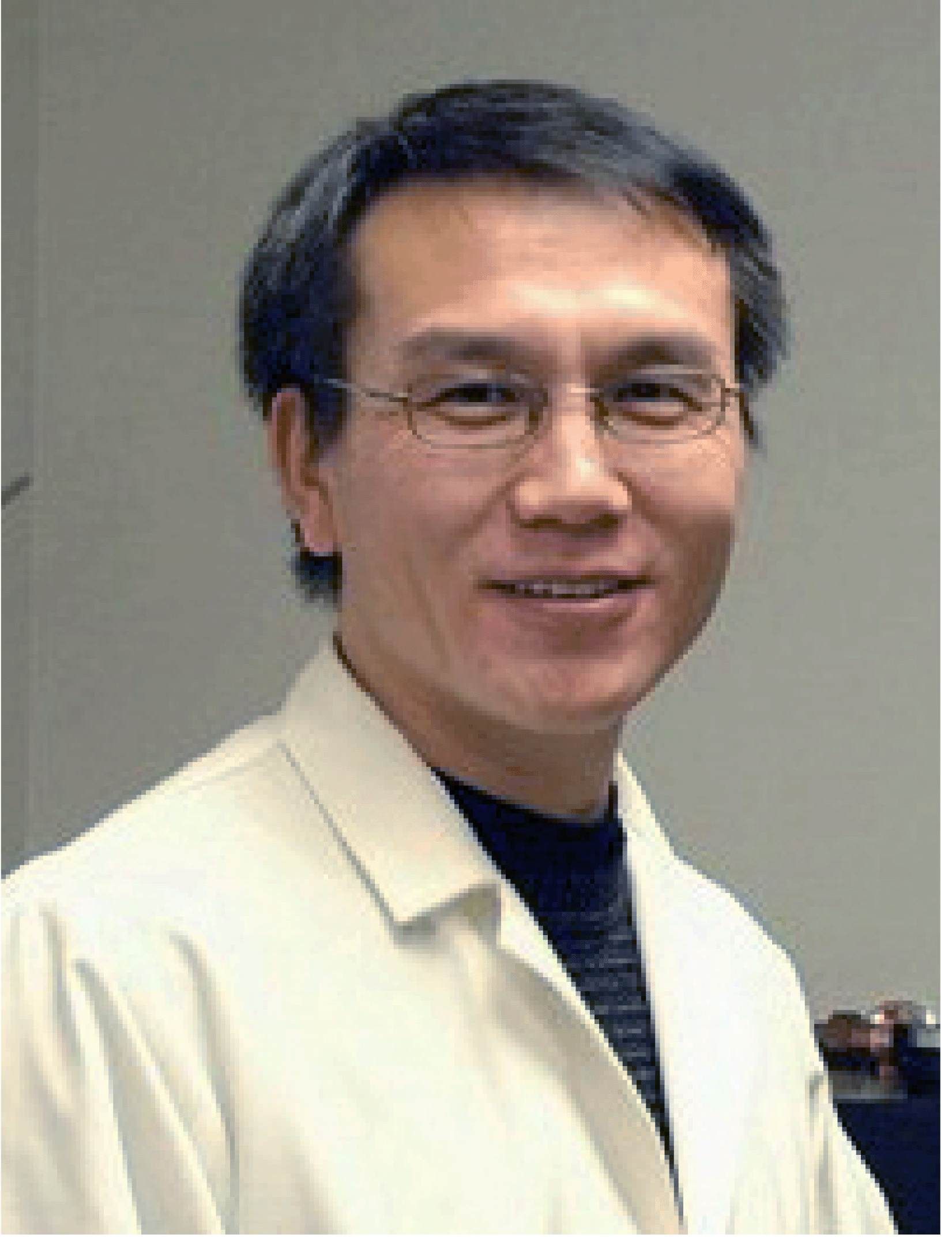 Julian Zhu, professor of chemistry at Université de Montréal, obtained his B.Sc. from Nankai University in China and his Ph.D. from McGill University in Canada in 1988. Having worked as a postdoctoral researcher in France and in Toronto, he started his academic career at Université de Montréal, where he is now a holder of the Canada Research Chair on Polymeric Biomaterials.
Julian Zhu, professor of chemistry at Université de Montréal, obtained his B.Sc. from Nankai University in China and his Ph.D. from McGill University in Canada in 1988. Having worked as a postdoctoral researcher in France and in Toronto, he started his academic career at Université de Montréal, where he is now a holder of the Canada Research Chair on Polymeric Biomaterials.
His research interests are in the synthesis and characterization of new polymeric materials that can be used for biomedical and industrial applications. Examples include new hydrogels for soft tissue replacement, biodegradable polymers for drug delivery systems, dental filling resins and polymeric support materials in combinatorial synthesis in drug discovery. Various advanced nuclear magnetic resonance techniques including NMR imaging have been used in the characterization of polymers, especially in the study of diffusion of small and macromolecules in polymeric systems. He and his co-workers have also proposed a new physical model of diffusion which has been used successfully in the interpretation of the diffusion phenomenon in polymer gels. He and his research group have made many contributions in soft materials sciences and polymer chemistry. He has co-authored more than 180 research articles published in scientific journals. He has been invited to give lectures on his research work in international conferences as well as in many research institutions. He has been awarded the Alexander von Humboldt fellowship as well as the AstraZeneca Research Award by the Canadian Society for Chemistry. His collaborations with other colleagues in Canada and other countries have been fruitful. Many researchers and students from other countries (including France, Germany, Spain, Romania, Czech Republic, China, India, Chili, Mexico, just to name a few) have made their research stays in his lab. This further enhanced the research capacity and progress of his group.
The inherently interdisciplinary nature of the research work in Zhu’s group creates many natural links with other established areas of strength at the Université de Montréal, the École Polytechnique, McGill University and several research institutes and hospital research centers in the area. As a result, research in this area will gain increasing international visibility for Université de Montréal in ways that can strengthen its traditional areas of excellence and make it likely that new fields are developed.
He presently directs a group of 11 graduate students and postdoctoral fellows. His group offers a multidisciplinary environment for the training of young researchers in the development of integrated skills in synthesis, structural analysis, and physical characterization. Students trained in this environment will help provide Canada with the skilled personnel it needs to remain competitive in materials science. For more information, see here: www.mapageweb.umontreal.ca/zhuj.
What was your inspiration in becoming a chemist?
Chemistry offers solutions to the problems encountered to have sustainable economic and technological developments: such as energy shortage, environmental protection, resources, etc. A polymer chemist can help to solve many of these problems. I often tell the students: The public often has the false impression that chemistry caused many problems related to our environment; we need to re-affirm to the public that we chemists are part of the solution to the problems. With new and better chemistry, we can address such problems.
(The real answer: I actually wanted to be a mathematician, but I had a very good score in chemistry for my entrance exam held in China that year and I was assigned to a chemistry department. It happened that Nankai University had a very good chemistry department and I loved chemistry ever since and became a polymer chemist.)
What was the motivation behind the research in your recent Polymer Chemistry paper?
(DOI: 10.1039/C2PY20168B)
We wanted to use natural compounds to prepare new materials to improve the biocompatibility and bioacceptance of polymers to be used in biomedical and pharmaceutical applications. Bile acids are natural compounds that are stored in our gallbladder in large quantities and help in the digestion of lipids in our body (and also in most animals). We use bile acids and other biomolecules to make new polymeric materials, study their properties and explore their potential use.
Why did you choose Polymer Chemistry to publish your work?
Polymer Chemistry is a new journal with a good visibility in our field. We have published several papers in this journal including an invited review paper.
In which upcoming conferences may our readers meet you?
I attend ACS meetings regularly and will attend the annual meeting of the Canadian Society for Chemistry to be held in Calgary in May this year. I was also invited to attend the International Symposium on Polymer Chemistry to be held in Changchun, China in June.
How do you spend your spare times?
I love gardening, and I grow all kinds of vegetables. I bring the over-supplies to my friends, neighbors and students. The only problem for me is that the summer is a bit too short in Canada.
Which profession would you choose if you were not a scientist?
I have not given much thought about an alternative profession in life. I always liked to teach and to do research. I may want to be a lawyer, not for the money, but for the sake of a good argument. I may also want to be a linguist or a translator; all the different languages in the world fascinate me.










